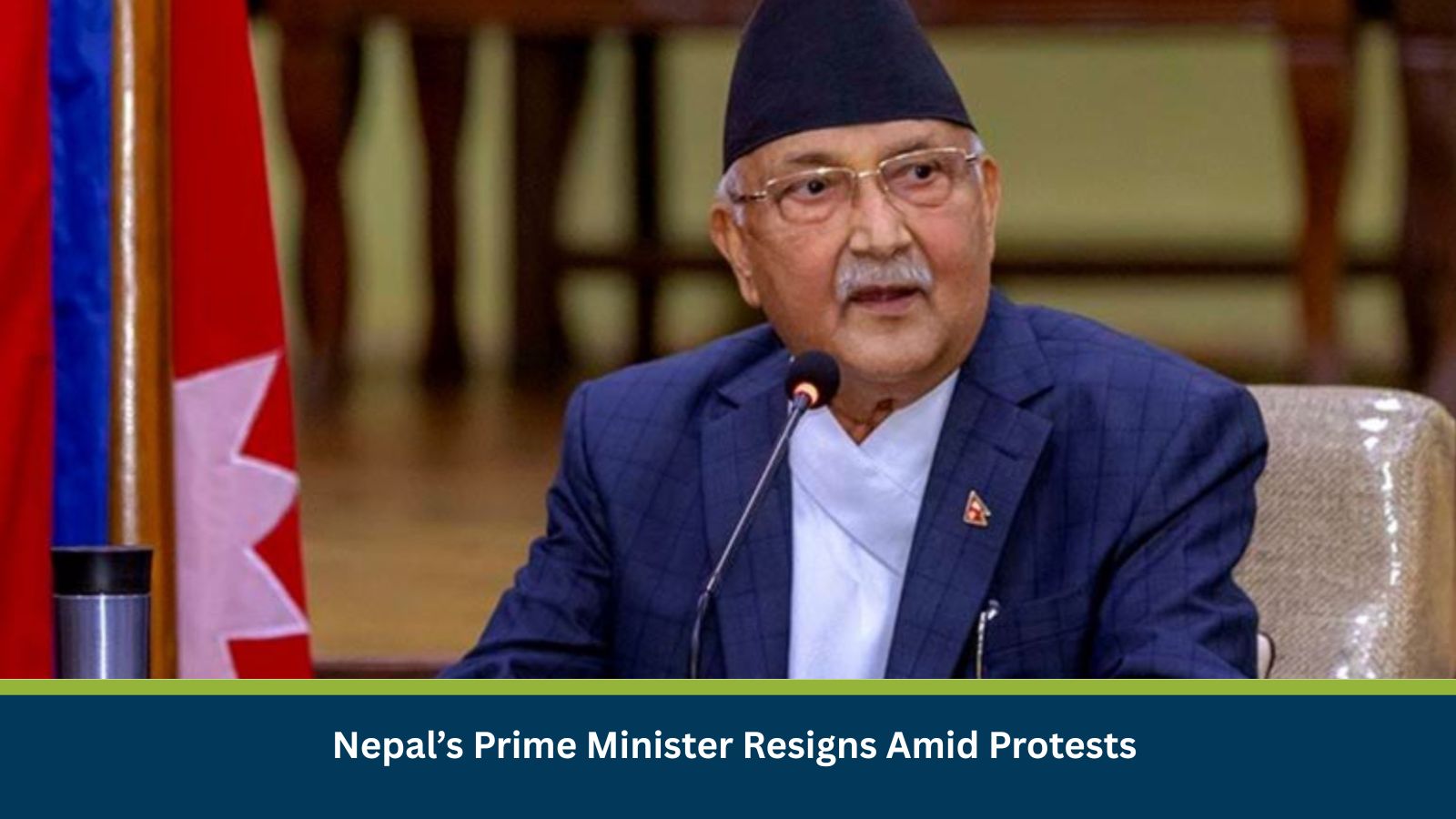On 09 September, Nepal’s Prime Minister, KP Sharma Oli resigned following a wave of youth-led “Gen Z” protests. The demonstrations began over allegations of corruption and escalated after the government banned social media platforms. However, now the government has lifted the social media ban.
Clashes with police have resulted in at least 21 deaths and more than 200 injuries.
The unrest also led to significant travel disruptions. All flights at Tribhuvan International Airport (TIA) have been cancelled on 09 September, due to serious security concerns and unprecedented circumstances.
A statement signed by Prime Minister Oli states that he has resigned to pave a way for the constitutional solution of the current crisis. The president has accepted his resignation, and the search for a new leader is underway. The Home Minister, Ramesh Lekhak, and the Agriculture Minister, Ram Nath Adhikari, have also resigned from their posts.
In an effort to de-escalate the situation, the Nepali Army and the chiefs of other security agencies issued a joint appeal on Tuesday, urging protesters to exercise restraint and seek a resolution through dialogue.
In an appeal letter, Nepal’s Gen Z’s have said that “This country has come under our leadership. There is no damage to public property. Let’s move forward with patience and patience.” “Our minimum stance is to form a civilian government led by a universally acceptable person and go for new elections.”
Due to the security situation, advisory has been issued by the Indian embassy recommending against all non-essential travel to Nepal. Individuals in the country are advised to monitor the developing situation closely and avoid protest sites.
MitKat will continue to monitor the developing situation closely and update clients accordingly.
Disclaimer: The article has reference to BBC, India Today, and the Kathmandu Post.






